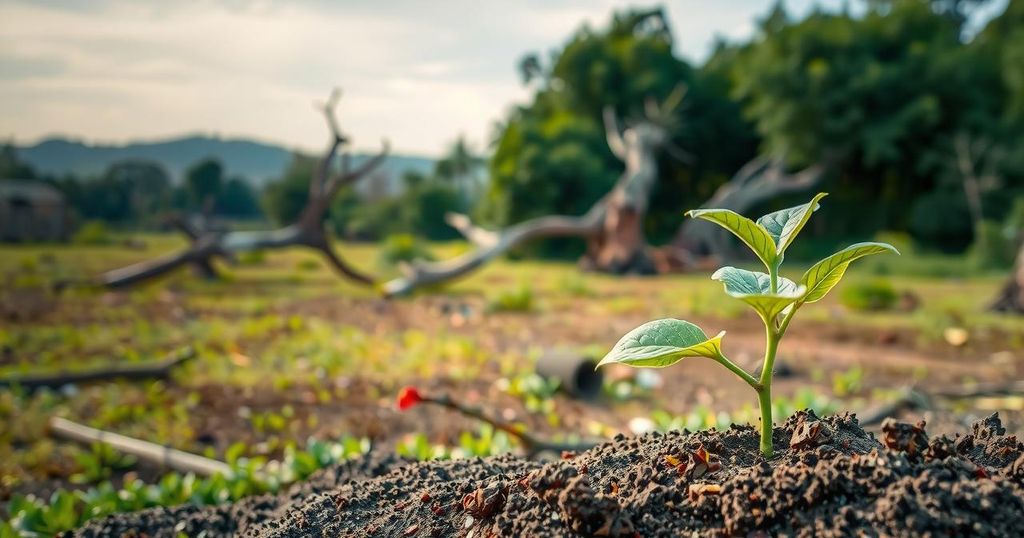Mozambique’s Response to Cyclones Chido and Dikeledi: Urgent Needs and Challenges
Mozambique is currently affected by Cyclones Chido and Dikeledi, which have impacted over 737,000 people. Cyclone Chido, a Category 4 storm, caused catastrophic conditions in Nampula and Cabo Delgado. The UNHCR has reached 30,000 people, but an additional 7.99 million USD is required to assist more individuals as the threat of further storms persists.
As of January 30, 2025, Mozambique faces severe repercussions from Cyclones Chido and Dikeledi, impacting over 737,000 individuals. Cyclone Chido, a Category 4 storm, struck on December 15, 2024, near Pemba, unleashing winds of up to 80 km/h and torrential rainfall that surpassed 250 mm within 24 hours. The storm has disproportionately affected the northern coastal provinces of Nampula and Cabo Delgado, aggravating the existing vulnerabilities of internally displaced populations. Tropical Cyclone Dikeledi further impacted 283,000 people after making landfall in Nampula on January 13, 2025, highlighting the ongoing threat of cyclones during Mozambique’s rainy season.
Cyclones Chido and Dikeledi have struck Mozambique during the annual rainy season, typically lasting from November to March, which is historically associated with increased cyclone activity. The disastrous effects of these storms are compounded by the presence of internally displaced persons (IDPs) within affected communities, many of whom have previously been forced to relocate due to conflict. As a result, preparedness for continual adverse weather remains critical for recovery and resilience.
In conclusion, the impact of Cyclones Chido and Dikeledi significantly challenges Mozambique, necessitating urgent humanitarian assistance. With nearly 8 million USD required to provide aid to an additional 362,000 affected individuals, it is imperative that response efforts focus on the most vulnerable populations, especially the IDPs. Ongoing monitoring and readiness for subsequent storms are critical for ensuring community resilience and recovery.
Original Source: reliefweb.int




Post Comment